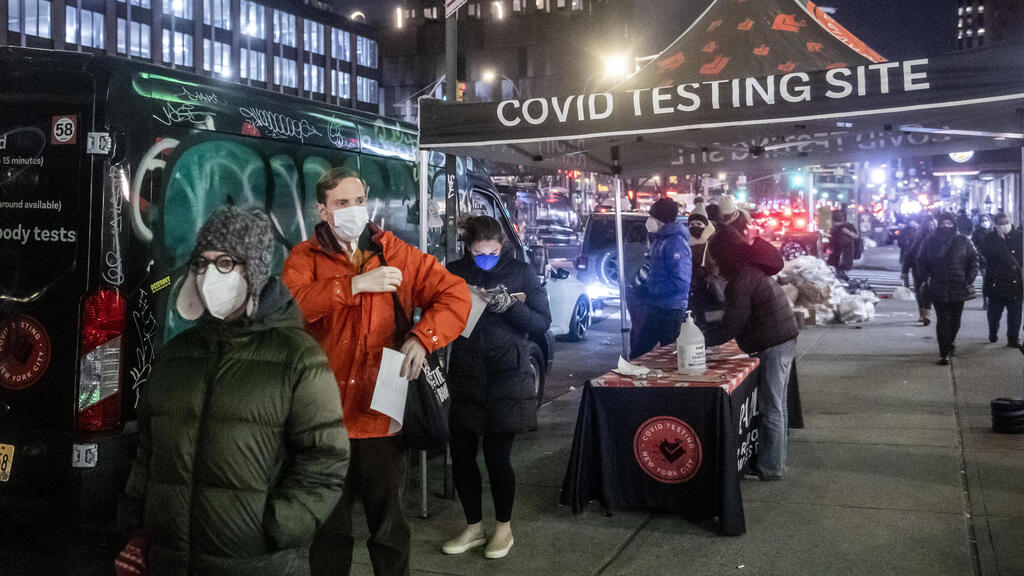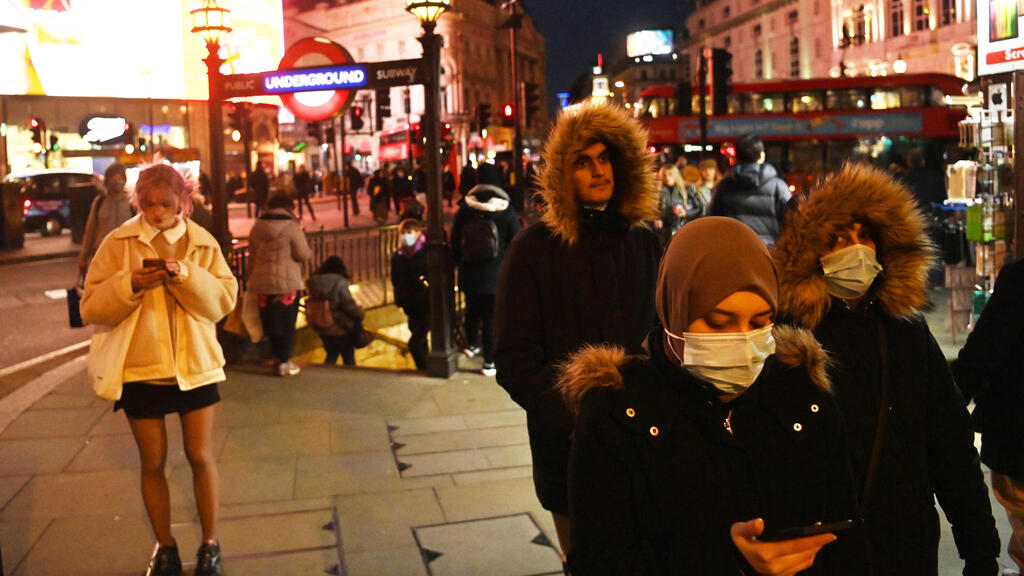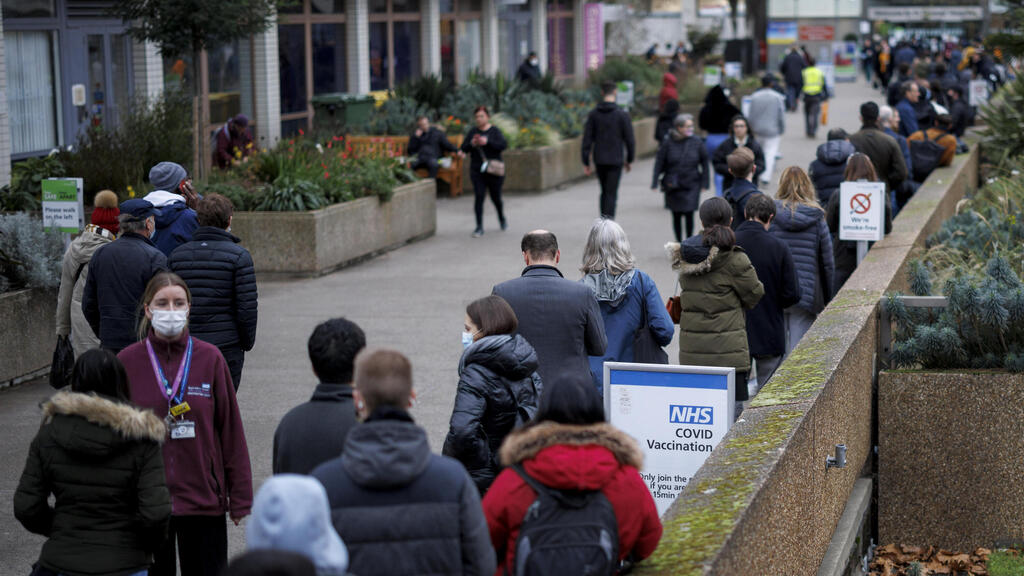Getting your Trinity Audio player ready...
While Israel has been somewhat slow to lift its coronavirus restrictions amid a tame decrease in the number of severe COVID patients and hospitalizations -- many places in both Europe and the U.S. have already lifted many of their most stringent restrictions, triggering a wide range of responses from medical experts around the world.
Several Israeli health experts working in these countries have either lamented these economically-driven decisions to lift the potentially life saving measures, or otherwise have voiced their approval amid signs that the Omicron is indeed less dangerous than previous strains.
5 View gallery
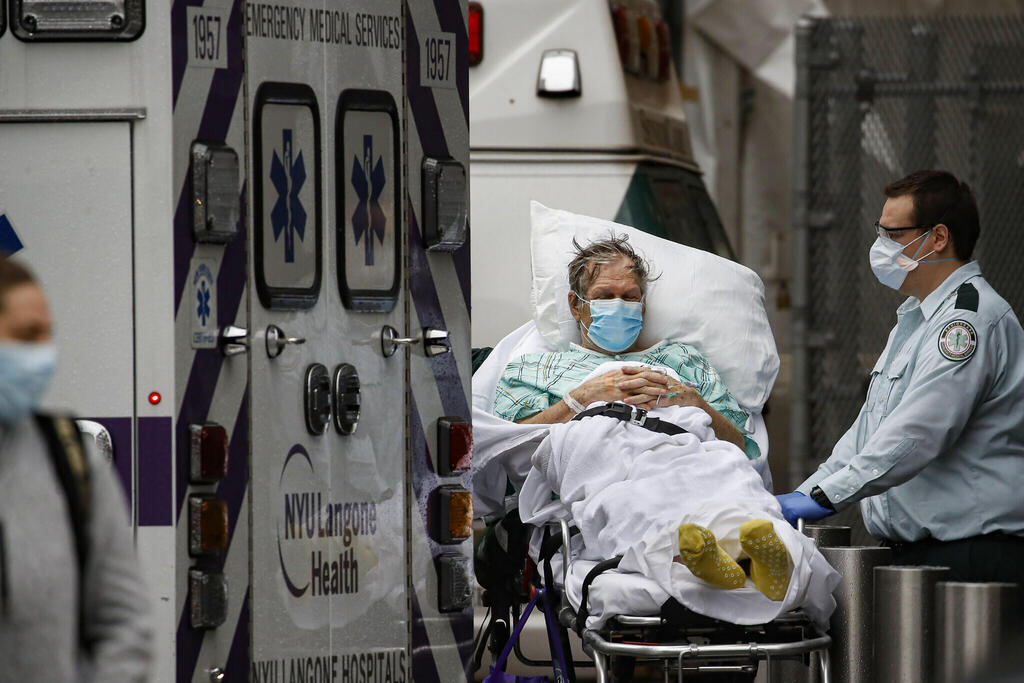

Patients and medical workers outside the emergency room at NYU Langone Medical Center, New York
(Photo: AP)
In New York, where COVID cases climbed at a seemingly uncontrollable rate, a decline in the number of daily cases has been noted over the past month, prompting Governor Kathy Hochul to announce an end to the state’s mask mandate, as well as to the need to present a vaccine certificate at the entrance to indoor locations.
According to Dr. Amos Dodi -- an ICU and pulmonary disease expert working in New York’s Albert Einstein College of Medicine, who only a month ago warned that the metropolis’ health system is on the verge of collapse -- the situation in the city has indeed improved.
“We are seeing more or less a third [of the infections] we saw at the height of the current wave. We actually see a decrease in all our indicators,” Dodi told Ynet on Thursday.
“Our COVID ward is almost completely empty, we have patients on ventilators here and there, but these are remnants of the wave itself and not new cases. "
Dodi adds that the decision to lift the mask mandate is part of a trend of democratic governors, “who are beginning to succumb to pressure to remove restrictions.”
Dodi believes lifting the restrictions in New York is warranted.
“We do need to occasionally ease up on the restrictions, these are things that pertain to the economy. New York City suffered a severe economic blow during this pandemic, so I think we really need to loosen up a bit and let the economy here breathe."
In Sweden ,meanwhile, authorities have decided to forfeit PCR testing of the public, altogether.
According to Dr. Arnaldo Kaminer, an Israeli doctor working in the country, over the past two years the Swedish government paid around NIS 7.5 billion for PCR tests alone.
5 View gallery
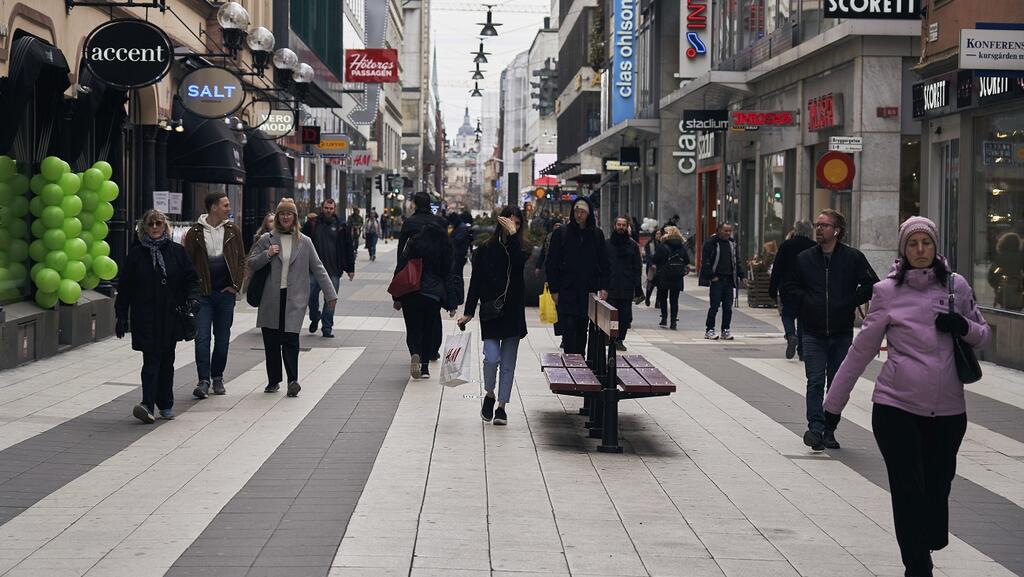

People walking without a mask in the Swedish city of Stockholm during the COVID pandemic
(Photo: AP)
"Now they have decided that the tests are no longer effective, especially when the [Omicron] is so common and so contagious, and yet less harmful than the Delta variant or other previous strains,” says Kaminer, who adds he believes the decision is sound.
"Hospitals will still have rapid tests and PCR, so this is about the general public. The guidelines on social distancing remain as they were. If someone is sick, stay home. That was true both when there was the flu and during COVID.”
In the U.K., all restrictions have been effectively lifted, including, most recently, compulsory isolation.
"The government wants us to refrain from calling it a 'pandemic', and instead to call it an 'endemic'. Because when you change the name, you can change the public’s attitude,” says Prof David Katz, an Immunology expert working in London.
“These are politically-motivated decisions… Testing shows us we have some 80,000 daily cases, but it's more likely that we have twice as much, that’s about 160,000 new COVID cases a day.”
According to Katz, the lack of sufficient testing means new infection chains, which in turn could endanger the country’s most vulnerable populations.
“There are people who must be in isolation, whom we must care for, such as those living in nursing homes. Testing must be done before anyone is allowed to enter such places,” Katz adds.


